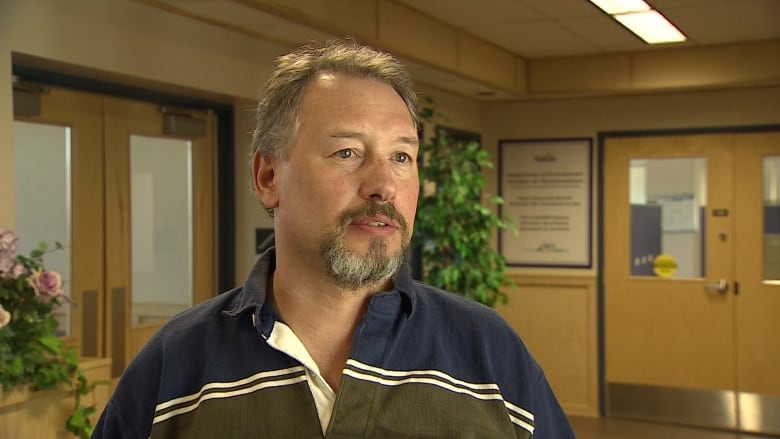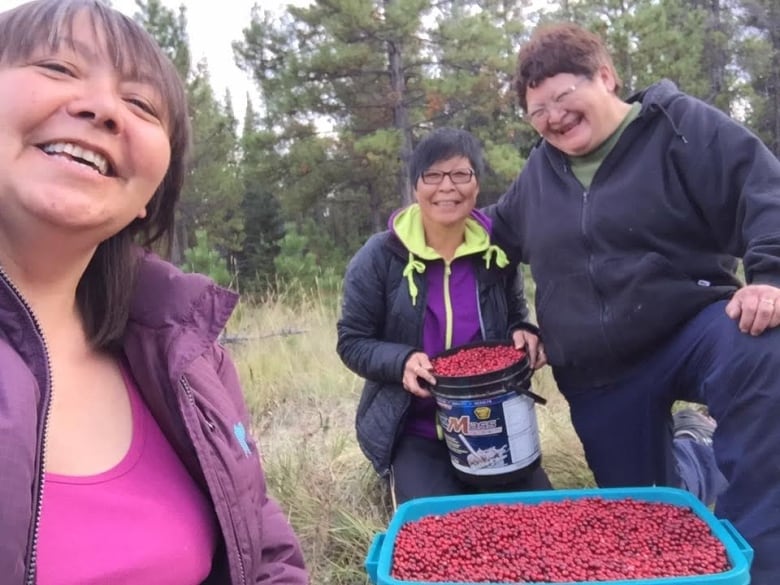Late summer in the Yukon is usually lush with berries.
There are haskaps, cloudberries, bearberries, saskatoon berries and more. But in recent years, it’s been slim pickings.
Mary-El Kerr owns and operates Mary-El Fine Food and Catering, which often features locally grown and foraged produce.
“I remember years ago we could go and get gallons in a day of these beautiful, juicy, big fat huckleberries,” she said. “And they’re just not there anymore. Or not nearly as prolific as they used to be.”
Kerr said the change is worrying.
“I love wild berries, but I didn’t even go out this year,” she said. “A lot of my berry-picking buddies were saying they hardly got anything. It’s really declining.”
In January 2023, a study in the scientific journal Botany revealed that Kerr’s experience is borne out by data. The project was a collaborative effort by University of British Columbia, University of Toronto, and Government of Yukon researchers. It was spearheaded by Charles Krebs, a retired professor of zoology who has worked in the Kluane region for over 50 years.
The study began in 1997. Researchers monitored 710 sites in Kluane over 26 years to assess how berry ground cover was changing over time. In Mayo, they began monitoring 500 sites in 2005, marking off sections with flags. The results revealed that berry plants have been receding for decades.
Tom Jung is a senior wildlife biologist with the Yukon Government and co-author on the study.
“The overall decline is 0.6 per cent to 1.3 per cent, but this is annually,” said Jung. “So it is cumulative and over the two decades of our study it starts to add up quickly … about a 10 per cent decline per decade.”

While he notes that the research is limited to southwest and central Yukon, he said the findings are consistent with anecdotal reports from across the North.
“We’ve been hearing [similar stories] from scientists and Indigenous people, local people, from Alaska and other parts of North America,” he said. “So there does seem to be something going on with berries.”
So far, researchers aren’t sure what’s causing these changes. The data didn’t find any relationship between summer temperature or rainfall. Jung said he’s working on a follow-up paper.
“We believe it may be other things we haven’t been measuring, like the amount of shrubs in the areas that may be concealing or blocking sunlight, or soil moisture related to snow depth. We’re not too sure what the cause is.”
But Jung did hedge a guess that it is related to climate change in some way. He said the research on berries is part of a larger ecological monitoring effort by the Yukon government to try and understand how the environment is changing.
Traditional food at risk
Diane Baxter lives in Inuvik, but used to find and pick berries along the Dempster Highway and in Whitehorse.
Baxter says it’s now been years since she did that. For one, the opening of the Tuktoyaktuk highway gave way to new berry-picking opportunities closer to home. But also, for the last several summers, forays to the Yukon to look for berries have ended in disappointment.
“Our regular spots were all so dry,” she said. “Usually you’d have to wear boots and stuff like that because the areas would be wet. But we didn’t even have mosquitos last year.”
Baxter and her two cousins pick berries as a service to their community.
“We always provide berries to elders, we donate to funerals and weddings,” she said. “Not everyone has the opportunity to go out or family to pick for them.”

For communities in the North where it is difficult to access fresh foods, Baxter said the loss of berries would be devastating.
“A lot of people [rely on berries] for their fruit intake, their vitamin intake,” she said. “And we use them for trade and bartering. Like if we don’t get caribou here, I’ll trade with, say, someone in Old Crow for moose meat or caribou meat.”
Without berries, Baxter said, accessing fresh foods may otherwise be out of reach, especially for families with young children who may already be dealing with financial stressors.
“Not having traditional food … it just affects everything.”



